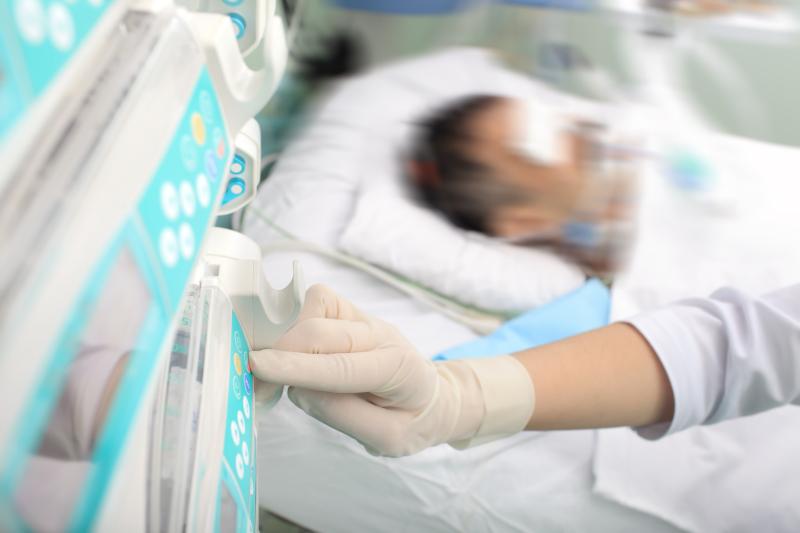
Early treatment with high-dose enteral vitamin D3 falls short of improving outcomes in critically ill patients with vitamin D deficiency, according to data from a phase III trial.
The primary analysis included vitamin D–deficient patients (25-hydroxyvitamin D level, <20 ng/ml [50 nmol/l]) who were randomly assigned to receive a single enteral dose of 540,000 IU of vitamin D3 (n=538) or matched placebo (n=540). All patients were at high risk of death.
At day 3, the mean 25-hydroxyvitamin D levels were 46.9 ng/ml (117 nmol/l) in the vitamin D group and 11.4 ng/ml (28 nmol/l) in the placebo group (difference, 35.5 ng/ml, 95 percent confidence interval [CI], 31.5–39.6).
The primary endpoint of 90-day all-cause, all-location mortality did not significantly differ between the two treatment groups (23.5 percent with vitamin D vs 20.6 percent with placebo; difference, 2.9 percentage points, 95 percent CI, −2.1 to 7.9; p=0.26).
Likewise, the groups were comparable in terms of secondary clinical, physiological or safety endpoints. Researchers noted that the severity of vitamin D deficiency at baseline had no impact on the association between the treatment assignment and the risk of death.
The findings do not support early testing for or treatment of vitamin D deficiency in critically ill patients, according to the researchers, adding that there are ongoing studies that will examine the effect of vitamin D supplementation in patients with severe vitamin D deficiency, in other subgroups of patients that may be more likely to benefit, and on long-term outcomes.